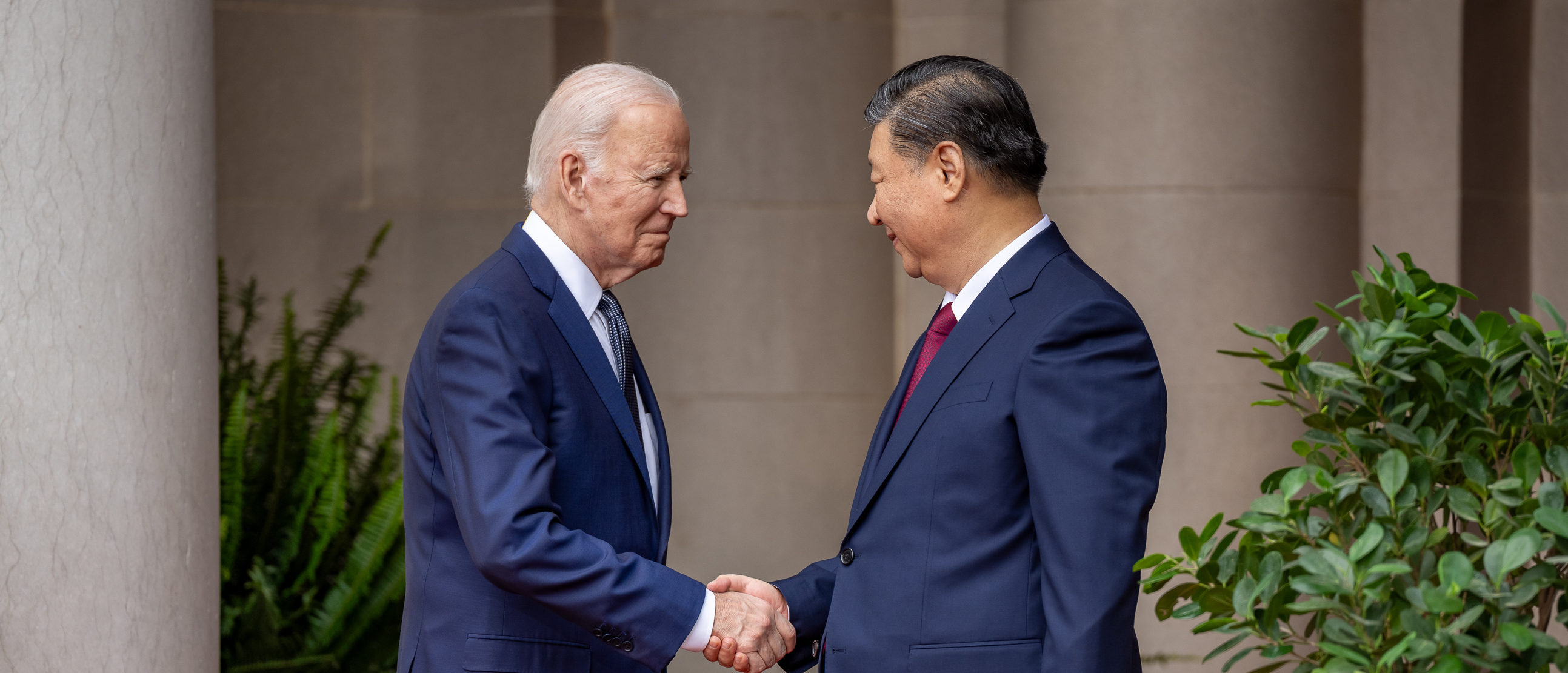Politics
US-China Tech War Tensions Escalate As Biden Admin Moves To Restrict Chip, Semiconductor Exports

Flickr/Official White House Photo by Carlos Fyfe
The Biden-Harris administration announced on Monday restrictions prohibiting exports of certain types of chips and semiconductor equipment to China, according to a press release.
The U.S. Department of Commerce’s Bureau of Industry and Security (BIS) announced a package of rules designed to reduce the People’s Republic of China’s (PRC) capability to produce advanced semiconductors that can be used in advanced weapon systems, artificial intelligence and advanced computing, according to the press release. The BIS also said in the announcement that 140 Chinese companies have been added to a restricted trade list.
The rules include new controls on 24 types of semiconductor manufacturing equipment and three types of software tools for developing or producing semiconductors. The BIS said that China has “mandated and incentivized” domestic companies to “dedicate significant resources to realizing a whole-of-society approach to indigenization that the PRC is taking to shape the global semiconductor ecosystem for its benefit and at the expense of the national security of the United States and its allies,” according to the press release.
The U.S. and China have been engaged in an ongoing tech war in an effort to gain a technological advantage in the production of advanced semiconductors used in computers. China announced in August plans to enact export restrictions on antimony, a mineral that is critical for producing certain weapons.
The Chinese government also issued a directive called Document 79 in September 2022, which requires state-owned firms to provide quarterly updates on their progress in replacing foreign software with Chinese alternatives, according to The WSJ. Some people refer to China’s effort to replace U.S. technology as “Delete A,” for Delete America, The WSJ reported.
The CHIPS and Science Act, which was signed into law by President Joe Biden in August 2022, has attempted to use subsidies to boost various domestic semiconductor manufacturing projects. Some of the projects subsidized by the president’s Inflation Reduction Act (IRA) and Chips Act have faced delays, however, which has hindered domestic production.
The Biden-Harris administration announced Tuesday that the U.S. Department of Commerce was awarding Intel Corporation, which manufactures and sells computer chips and other related products, up to $7.865 billion in funding under the CHIPS Incentives Program’s Funding Opportunity for Commercial Fabrication Facilities. The award comes on the heels of the chipmaker recently backpedaling on construction projects following record-breaking financial losses.
“This action is the culmination of the Biden-Harris Administration’s targeted approach, in concert with our allies and partners, to impair the PRC’s ability to indigenize the production of advanced technologies that pose a risk to our national security,” U.S. Secretary of Commerce Gina Raimondo said in the press release. “Further strengthening our export controls underscores the central role of the Department of Commerce in executing the United States’ broader national security strategy.”
Raimondo has previously said she wants to spend as much money as possible from the CHIPS Act before Trump’s return to the White House.
“The United States has taken significant steps to protect our technology from being used by our adversaries in ways that threaten our national security,” National Security Advisor Jake Sullivan said in the press release. “As technology evolves, and our adversaries seek new ways to evade restrictions, we will continue to work with our allies and partners to proactively and aggressively safeguard our world-leading technologies and know-how so they aren’t used to undermine our national security.”
During an appearance on Joe Rogan’s podcast ahead of the election, President-elect Donald Trump criticized the CHIPS Act, calling it “so bad,” according to Yahoo Finance. Vivek Ramaswamy, who was recently selected to co-head a new department within the second Trump administration, criticized the Biden-Harris administration for its rapid allocation of billions in chipmaking subsidies in a Tuesday social media post.
“The PRC’s Military-Civil Fusion strategy presents a significant risk that advanced node semiconductors will be used in military applications that threaten the security of the United States, as well as the security of our allies and partners,” Assistant Secretary of Commerce for Export Administration Thea D. Rozman Kendler said in the BIS press release. “These rules build on previous actions taken in service of our longstanding goal: protecting our collective security by constraining the PRC’s ability to indigenize the most advanced technologies, without unduly interfering with the continuing trade of technology.”
The White House did not immediately respond to a request for comment from the Daily Caller News Foundation.
All content created by the Daily Caller News Foundation, an independent and nonpartisan newswire service, is available without charge to any legitimate news publisher that can provide a large audience. All republished articles must include our logo, our reporter’s byline and their DCNF affiliation. For any questions about our guidelines or partnering with us, please contact [email protected].

